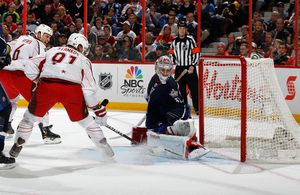Roberts: Comcast Talking to Leagues About Sports Fees Relief

The smarter way to stay on top of the multichannel video marketplace. Sign up below.
You are now subscribed
Your newsletter sign-up was successful
Comcast chairman and CEO Brian Roberts told analysts Thursday that the media giant is talking with sports leagues about possible rate relief during the suspension of play during the COVID-19 pandemic, but said it will mostly depend on when the games resume.
Comcast owns programmer NBCUniversal, which along with the NBC broadcast network and NBC Sports, has a large sports programming lineup.
“Our focus at the moment is trying to work with each of the various leagues where I think ultimately the answers to some of these questions reside,” Roberts said. “The leagues have to decide where they are going to be playing, what happens to the future, if they’re just starting the season or the current one that has been disrupted. I think we’re seeing encouraging movement all over the world including in the U.S. It’s very much top of mind. If we are able to get clarification, then we can give that to our customers. It works differently in Europe than it does in the U.S. ...There’s an awful lot of effort being spent to get back quickly and safely and I’m hopeful that that’s going to happen.”
As the lockdowns associated with the coronavirus pandemic enter their second month, reports have surfaced that some distributors have demanded relief from sports-centric channels because no games have been played. The National Basketball Association and the National Hockey League suspended their regular seasons on March 12 and Major League Baseball suspended its opening day on March 26. While there have been several scenarios put forth -- the latest is that baseball could return as soon as late June or early July -- with the NBA and NHL playoffs around the same time frame, no decisions have been made.
Comcast cable and other distributors have said in the past if they receive rate relief from programmers, they will pass that savings on to consumers.
A report in the New York Post claimed that Dish Network chairman Charlie Ergen has told sports network ESPN that it would not pay its affiliate fees in April because no games were played. Dish and ESPN declined to comment. In a blog post, LightShed Partners partner and media & technology analyst Rich Greenfield said he believes that multiple distributors have approached ESPN for a rate break.
While sources familiar with ESPN dispute that there has been a deluge of requests from distributors, the lack of games has been frustrating for consumers who chafe at paying monthly sports surcharges when there are no sports. But the question of whether distributors and networks will get relief depends on the deals they have signed. Most U.S. sports rights deals hinge on a minimum number of games delivered, and so far that hasn’t been breached.
The smarter way to stay on top of the multichannel video marketplace. Sign up below.
At the same time, in the United Kingdom, the English Premier League suspended its season in March and Comcast’s U.K. distribution arm -- satellite TV service Sky -- has stopped charging some customers for unbundled sports programming. According to some reports, EPL teams are beginning to return to practice -- adhering to social distancing protocols - and the league could resume play as soon as June.
Sky chief Jeremey Darroch said that the satellite service has paused many of its customers unbundled sports subscriptions during the pandemic.
“We thought that was a very sensible way to manage in an environment where the sports have gone away,” Darroch said. “That means the level of consolation regarding sport is de minimis. We think that positions us well to bring customers back when the sports season resumes.”
He added that Sky also is talking to the leagues about rights fees.
“We are talking pretty much to everybody at the moment,” Darroch said. “That covers a range of things. First we have to get sport back, which I think is in everybody’s interest. We’re working with rights holders, with government around what we can do to create a safe environment where sports can come back. The assumption is that sports will start to come back over the summer.
“In terms of the future and sports renegotiation's and new contracts, in principle my approach hasn’t really changed,” he continued. “We start with volume and the volume we see, we bid against that volume in a disciplined way. One of the advantages I think about the way sports are sold in Europe, is that typically we’re on shorter cycles, the average cycle would be three, perhaps four years. So that does give us the opportunity when we think there is some form of reset that’s required...Obviously we are thinking of that all the time and particularly at the moment and we’ll reflect that in due course.”
